About this Blog: Exploring Rissani market felt an honest experience in Morocco. A place not plagued by tourist, not decked up by Instagrammy lantern spots. Rissani was raw and real, sometimes unnerving. Surprisingly, Rissani was where I met the maximum number of local women of Morocco, in their natural demeanor. I loved Rissani, and I write that after experiencing Sahara Desert and the fortified Kasbahs of High Atlas Mountains. That says something. If you are looking for a cultural experience, Rissani is your best bait!
Read all my travel blog on Morocco.
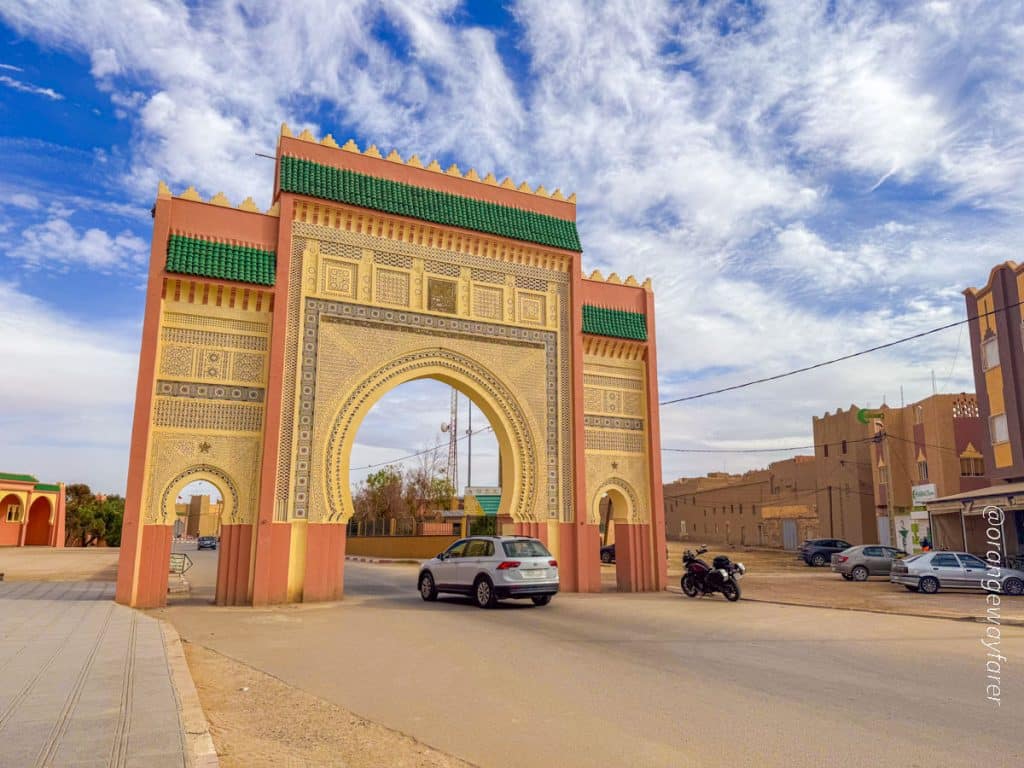
We stopped at Rissani market on our way from Sahara desert to Fes. Famous for the local market which is help on the weekend, Rissani is where they sell everything from Donkey to Tea leaves, and scraps of old cycles! When I say everything, I mean business!
Rissani is open on three days on the week. On Sunday locals from nearby villages bring fresh produce. On Friday, Jummabar, the market is almost dead. Ideally, you need to be there at the beginning of the day to experience busy trade system. It is one of the best cultural experiences in Morocco.
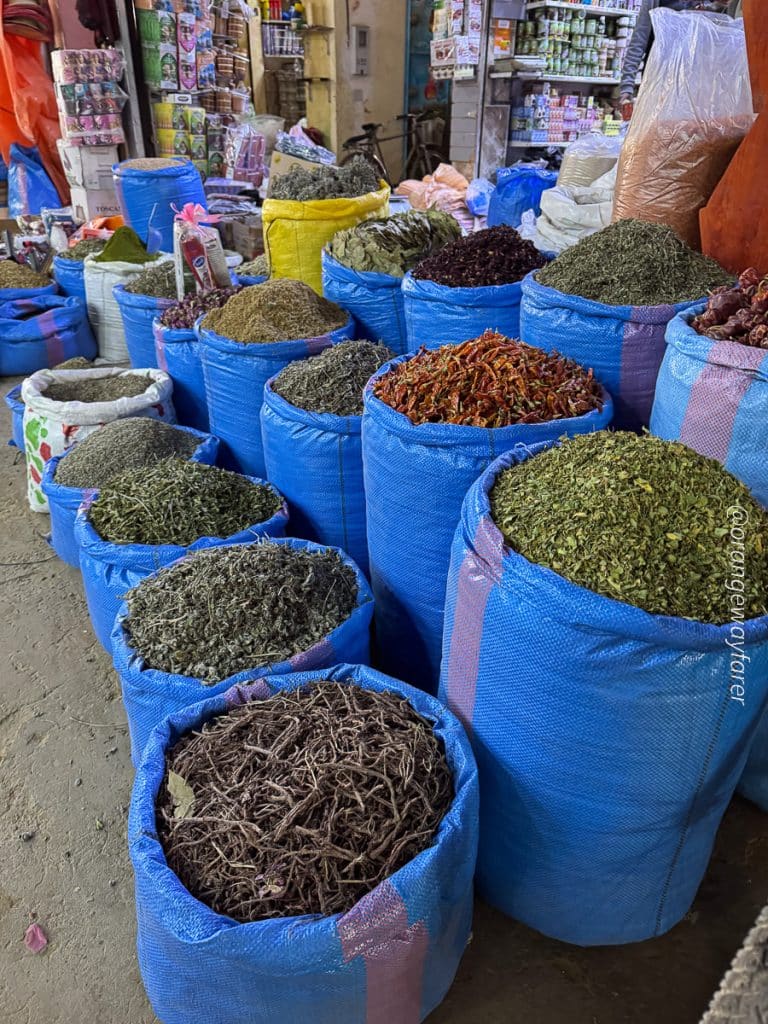
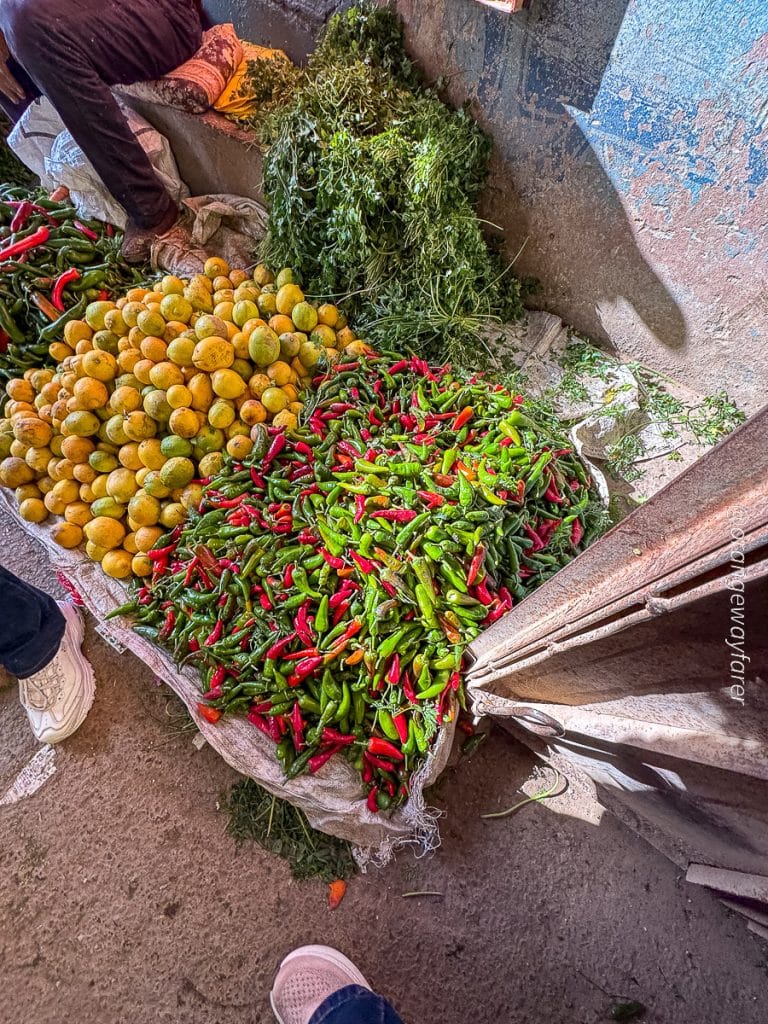
The ornate Gate of the Rissani stands at a corner. Rissani is a tax free city. Originally a home to the Berber tribe, or the people of Amazigh whose life is intertwined with the desert way of life, yet not nomadic in true sense, Rissani market served a primary place to source resources for the local communities. People would ride their donkey and journey from the interior to source their everyday nectar, the mint tea. The spices. The dates!
We parked the car at a parking ground which had a designated place for the donkeys to be parked. Parked I mean it! If Fes Medina looks medieval to you, Rissani will outdate that sense of medieval!
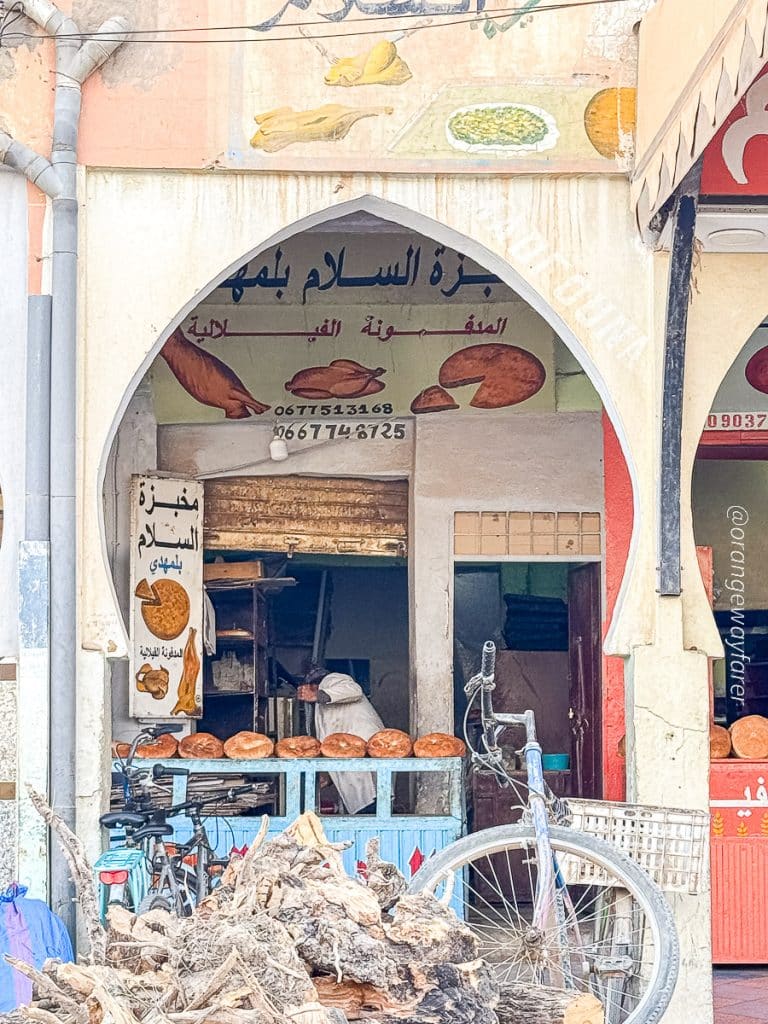
A small group of children came running to ask. few demanded pen, few asked for money. We had a guide, or else a few locals stood at a distance to offer guide service as well.
We walked past men preparing sandals from discarded car tires. Upcycling is a huge part of desert tribes.
The animal markets of Rissani is quite the experience! Cows and sheep have different quarters. Some of the animals had hind legs tied. Black sheep. White sheet. Brown goat. Cows. Mother cow with her calf.
I had seen a sizable animal market in Pushkar Rajasthan before. And the award-winning Banni buffalo of Gujarat, that fetches gold when put to trade.
Rissani is predominantly frequented by the Berber community. The market is a communal space shared by metal scrapers, spice traders, carper weavers, heaps of dates and countless animals. The dates are an essential lifeline of the desert household.
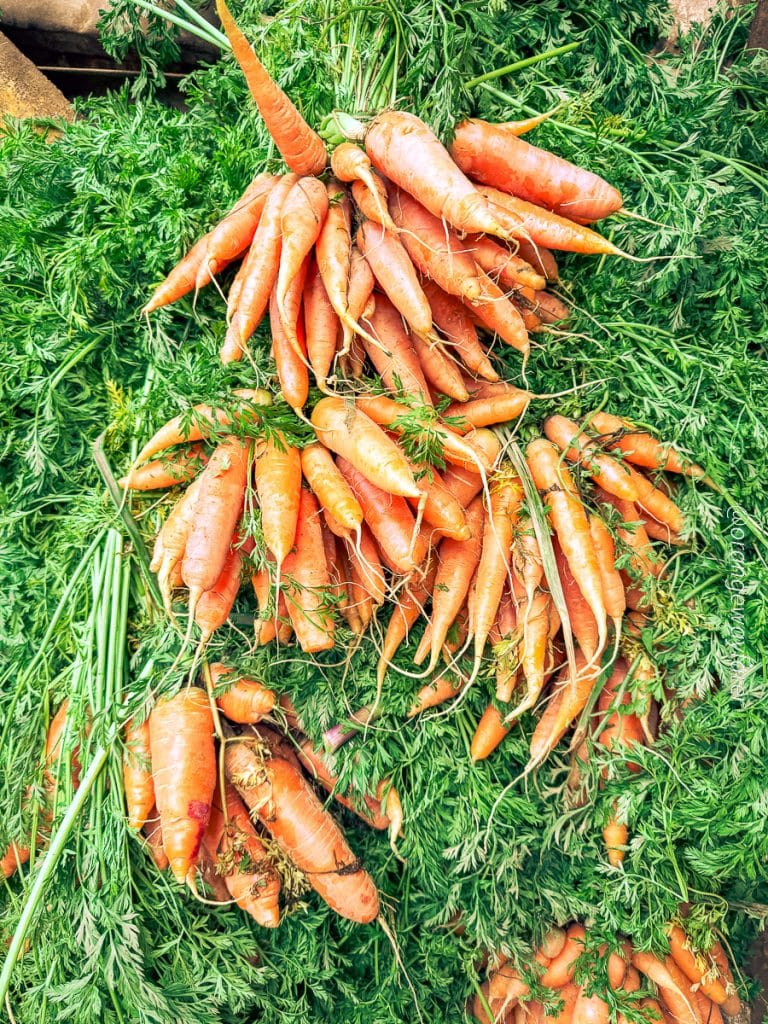
I had rushed to see the fish market because that is where my true interest is. But nothing to see there except for a few dealers of sardines, peeking from the ice box. Not impressed I venture further in. I see an African man sitting at the dromedary meat shop!
I had eaten Camel meat in India, during Ramadan in Bangalore when the roads near Koramangala was filled with the aroma of Kebab.
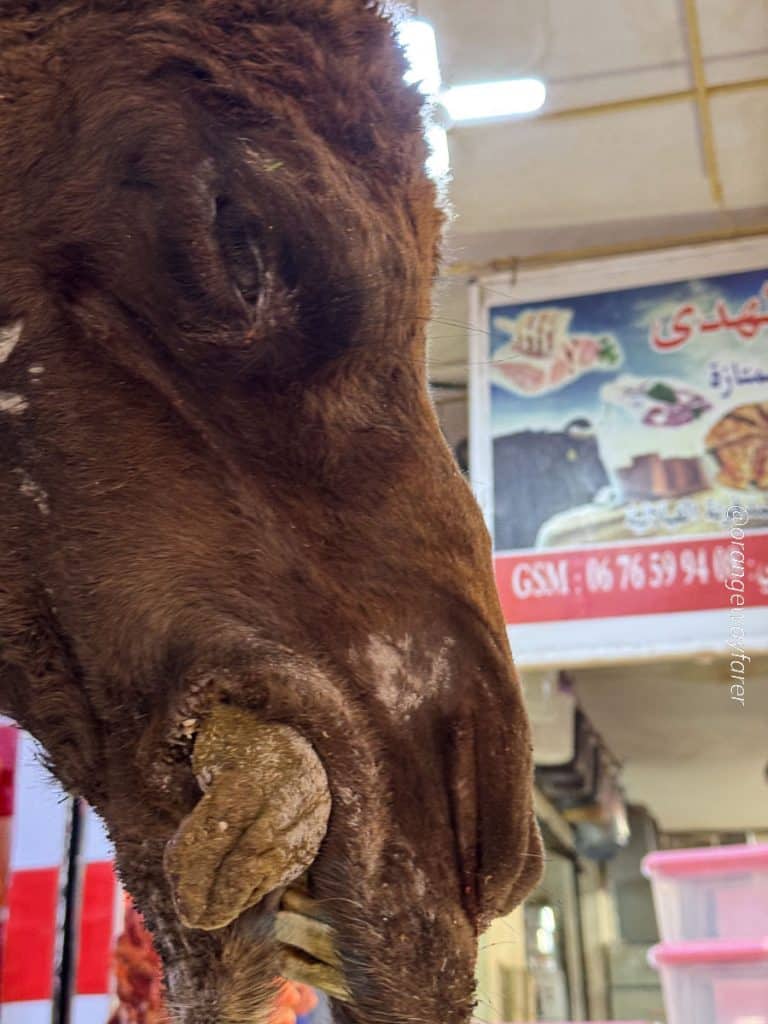
But this was different. I saw a whole dromedary carcass. The tongue out of a severed head. The hoofs. I cannot! I missed the opportunity to cease the moment with my camera. The seller senses my overwhelm and quarks “your husband should eat the hoof”. Some sexual innuendo in it. I sense it despite not knowing the language. Mouchine is a bit embarrassed, he does not make eye contact with me and he looks at my husband.
I see women walk confidently, independently. Rissani is not a typical tourist spot. They are wearing Burqa, carrying a child on their shoulder. Rissani market is timely and for locals. Women come here to source their daily needs. An ear bud that comes from a desert shrub. Raw materials and spice for the tagine she has to prepare the family. The eggs.
Being a Islamic country, Morocco is not a place where you see a lot of women in public place. Hug Rissani was an exception. Rissani is where you see the community life of the locals.
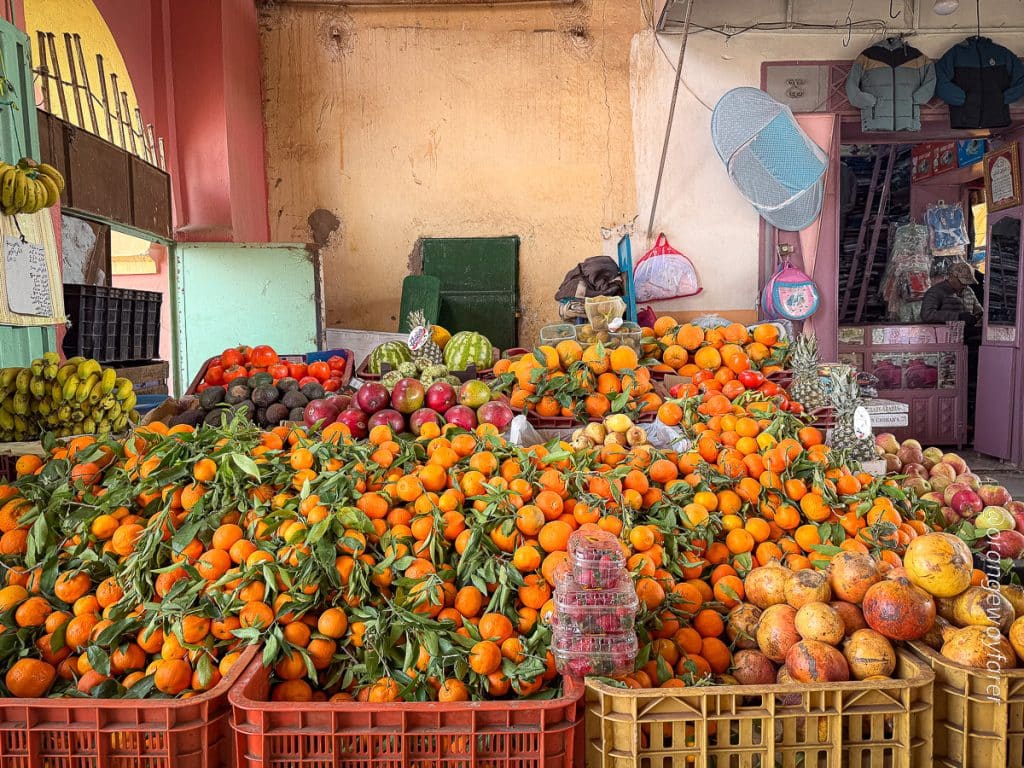
A group of people sit in a round table in front of the meat store and sip on the excessively sweet mint tea. They stare. The unending, overwhelming stare of Morocco I do not know how to avoid or deal with!
Our driver cum guide who accompanied us for the Sahara desert tour from Marakesh (and was going with us till Fes) had said that the king of Morocco belong to a family from Rissani. Morocco is a monarchy for those who do not know.
We stopped by a spice seller whose shop looked a lot like the Doshokorma Bhander of Behala bazar. It had little bit of everything. Time is not hurried in Rissani. He made us sit down and sip on some tea.
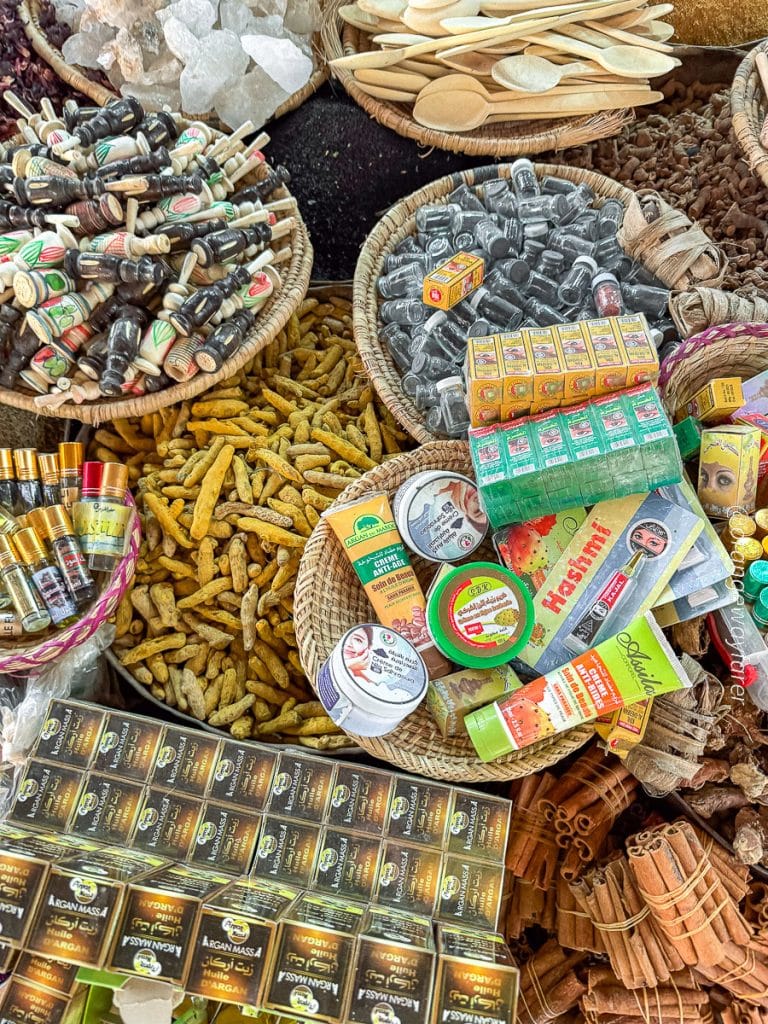
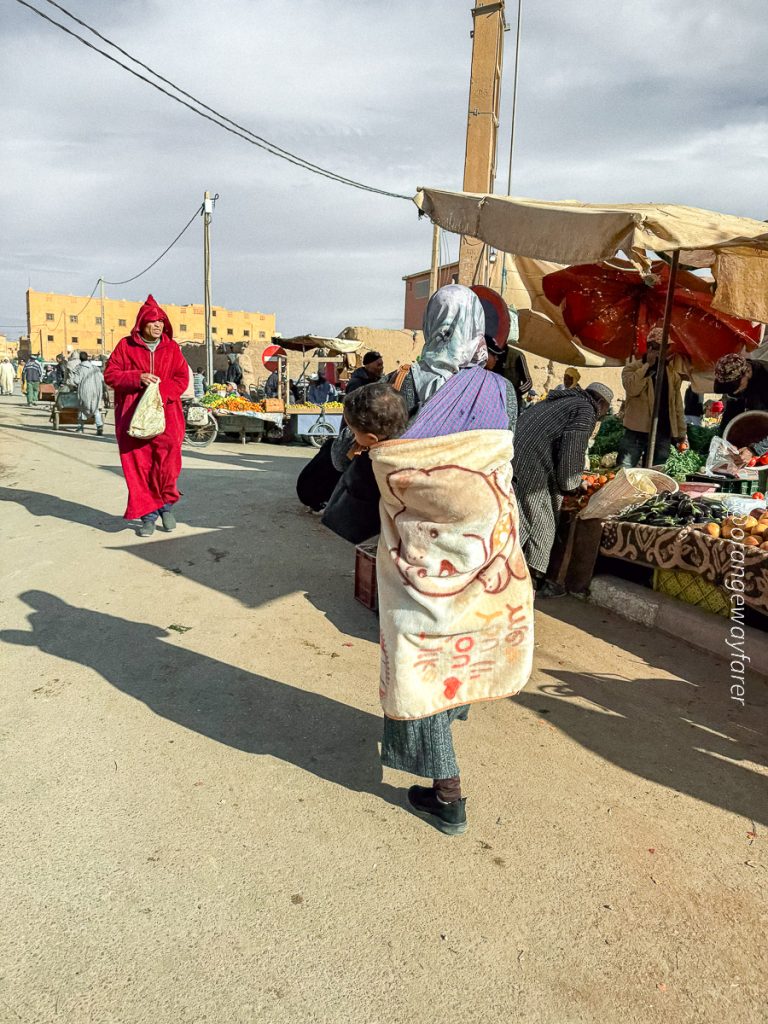
We picked up some spices. He tried selling us some saffron. From the valley of Persia, he said! I remember the saffron harvester of Kashmir valley. I pick up some ear buds, organic and plastic free. Some cinnamon looking barks. Little nothings. I hear many people say the spices are fake. The Saffron is not real saffron. The silver turned to copper.
May be. May be not. I remember Rissani as a fresh air of real, honest experience, the kind I seek whenever I visit an old civilization. It was one of the highlights of my entire Morocco trip. It is not aesthete, but it is intense.
_____________________________________________________________
Let’s stay connected on Facebook, Instagram, Twitter, Youtube!
This post may contain affiliate links. Please read the disclosure post. If you have liked the article, you may support it by buying using these links without any extra cost to you.